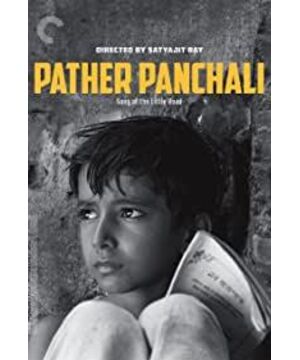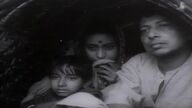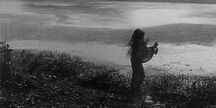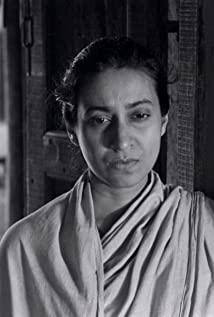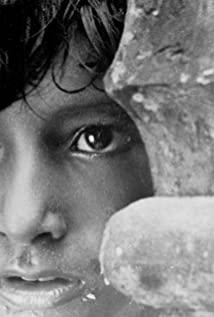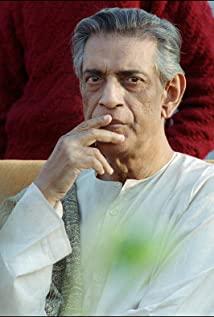In the film, after the independence of India, people's poor and hard life unfolded. On the one hand, there is a kind of natural beauty, and on the other hand, it shows the resilience of life. The most interesting character should be the old aunt, who lived without a fixed place, expelled, and returned to become the metronome of the story. Her singing represents a world of an older generation, an acknowledgment of destiny, and harmony with nature. After meeting the grandson of "The Great Disillusionment" and watching "The Bicycle Stealer", the director realized that the film can so profoundly show the real picture of social life and face the bleak life of the little people so bravely, so he immediately decided to shoot the film. . When my sister opened Apu's eyes, she told us that this was the world in Apu's eyes, and the moment when you opened your eyes to see. The whole story is about a once-prominent family that continues to fall and fall, until it finally has to join the ranks of working part-time workers. The film is very rhythmic, where every time the story happens, the whereabouts are paused, and people are enjoying themselves. Lens: The depth of field lens of documentary aesthetics, in the depth of the same space in the foreground, middle and background, different stories are happening at the same time, forming different levels of social discourse. Sound: The director's use of live sound and music constitutes the film's specific psychological presentation. Their sensitivity and emotion are a luxury for their lives, but this luxury sometimes emerges uncontrollably in their lives. What struck me the most was the situation of my father. The film keeps us kicking people to the point that my father can't face reality, and at the same time he can't bear the character of reality. The status he once had and the plays he loves are the sustenance of his life, but he has to face the whole family in precarious times. , a state of being difficult to feed and satiate.
View more about Pather Panchali reviews


